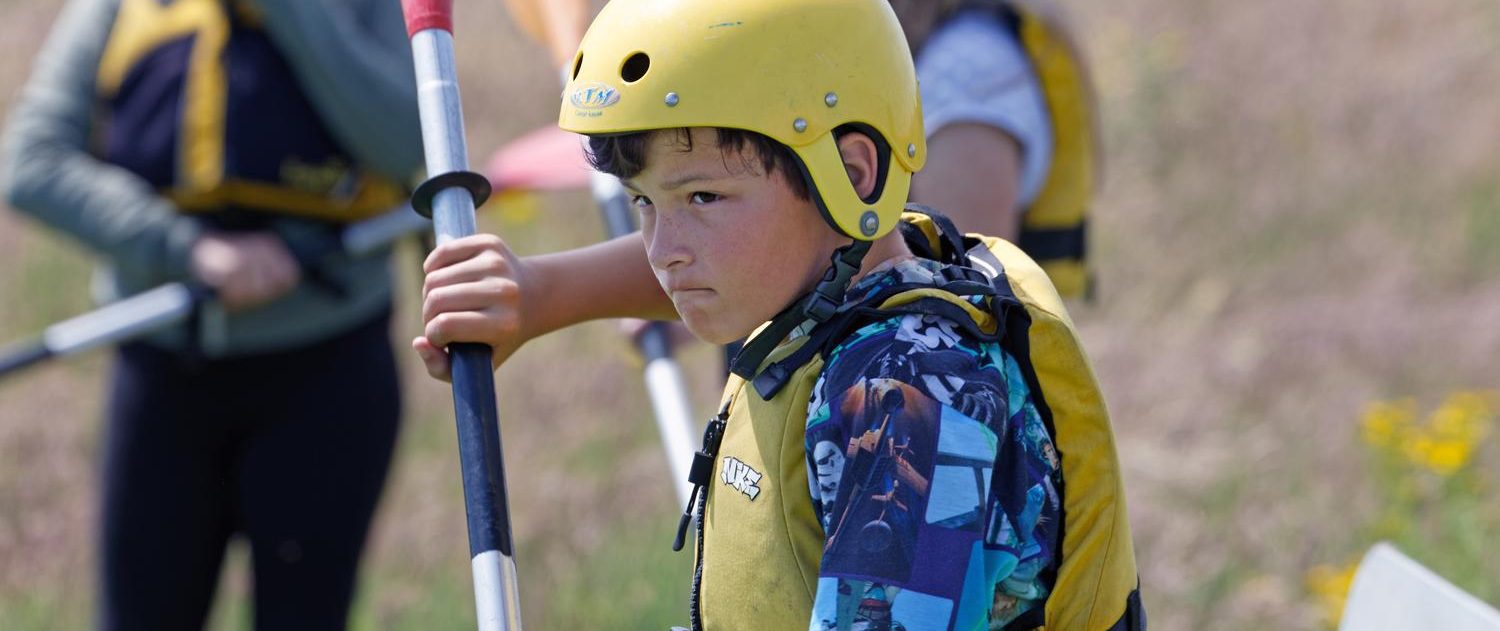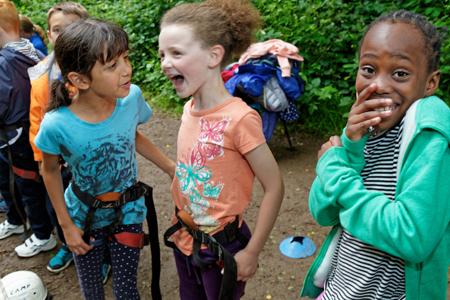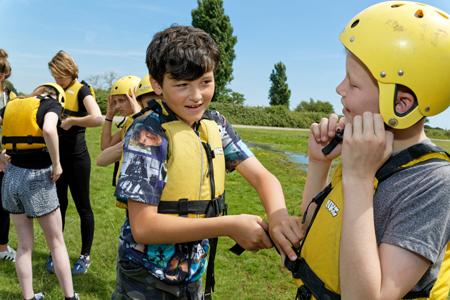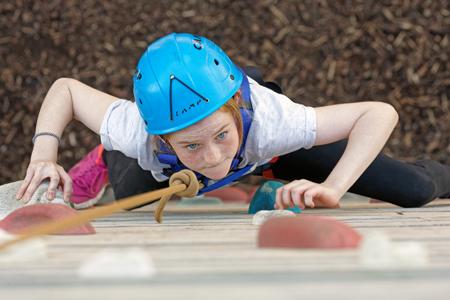
Opinions of the school system can differ, with some believing education has been focused on passing exam after exam to eventually achieve an A to C in their GCSEs. Those who argue this case believe what is therefore lacking from the other end of the scale is a drive to develop children’s character. With the upper years of secondary school some way away for some learners, developing the child – as it should be with learners of all ages – should be considered in its entirety.
Personal and social development of children
Arguably this begins from an understanding of learning behaviours and attitudes which, when placed in the context of learning outdoors, can see children interact with activities differently to how they may typically approach tasks in the classroom. For the child, value can be attributed to the task at hand. Out-of-the-norm, a uniquely different environment, and new challenges are all contributing factors to the change in character. But how can these qualities be nurtured to benefit the learner back in the classroom and in the future?
For young learners there can appear to be a disconnect between enjoying learning something new and understanding the value of learning a skill that will be used for a purpose. Being exposed to new challenges and working with peers to complete problem-solving tasks sees children develop key attributes they can call upon in future learning.

This can include (but not limited to):
+Communication skills
+Empathy
+Confidence
+Resilience
While young learners may not understand these attributes and see them develop, changing their attitude towards tasks by attaching value to them is achievable. In support of the push by Ofsted to identify ‘personal development, behaviour and welfare’, the Council for Learning Outside the Classroom (LOtC) have worked to support schools in developing a framework that will enhance the chances children have to develop personally and socially. Its research points to the benefits that adventure education can provide in offering opportunities to develop and demonstrate different skills.
How residential trips can support development goals
School residential providers offer a secure base for schools to kick-start and implement such a framework through adventure education. Away from the classroom, children’s character typically takes on a new face like Bruce Wayne to Batman. While the analogy doesn’t go as far as fighting crime, teachers will likely see the mask of the child ‘in school’ removed and true characters come out to flourish.
The structure behind tasks and the nature of adventure activity play a collective part in supporting the personal and social development of the child. They provide a gateway for characters to emerge and thus a platform to build upon the qualities of the individual.

Adventure education and the impact of activities
From orienteering, children can learn a new skill that not only has them arrive at an end goal but builds on independence, confidence and resilience to negotiate a new environment. Resilience is one aspect that is developed and itself supports the growth of other skills, including the ability to work as a team, handle conflicting opinions and collectively organise ideas to find a solution to a problem. Such interaction sees the child hold onto the experience and the skills they had to call upon for use the next time they are placed in a similar situation.
The range of activities and what each asks of the individual plays a big part not only in the skills that are developed but how the child deals with the situation. Building the determination to conquer the abseiling wall, having the belief to reach the trapeze from the leap of faith, taking to the water in a kayak, or even tunnelling through the smallest of channels can all be areas an individual needs to conquer themselves. How they achieve these tasks will come down to their character and the character of those around them. Voicing encouragement to your peers, placing the task into context, weighing up visible risks and outcomes, and realising the capabilities of the individual all culminate in the development of the learner.

Adventure education and the impact of the experience
The experience of being away from home on a school residential has its own impact on building the child’s character. For some, it may be their first time away from home or from their parents. Being placed in an unfamiliar environment and away from their parents will see children build resilience and closer bonds with their peers as they look to handle the change. Young learners with disabilities can also use the opportunity to build relationships with others away from their family/carer while also developing independence.
Knowledge of new activities and how to complete them, as well as knowledge of the world outside the classroom, are all inevitable outcomes of the school residential experience. The emotional experience of being away from home, interacting with others on a 2-, 3-, or 4-day stay, and physically being able to deal with the requirements of activities all have an impact on a child’s mental health, which typically sees parents/guardians see a notable difference in their child. The difference can stem from the character building that outdoor learning and adventure education naturally construct through a new and varied environment. Where characters can be built from experiences, the key is unlocking the opportunity for this to occur.
What do you think? Tell us on Facebook or Twitter and join the conversation.
Futher Reading:
SHOOT WITH A STAR AT CONDOVER HALL!
24 January 2019
IDEAS TO HELP TEACHERS PREPARE FOR OUTDOOR CLASSROOM DAY
16 October 2018
WHAT ARE THE BENEFITS OF OUTDOOR LEARNING?
4 October 2018

